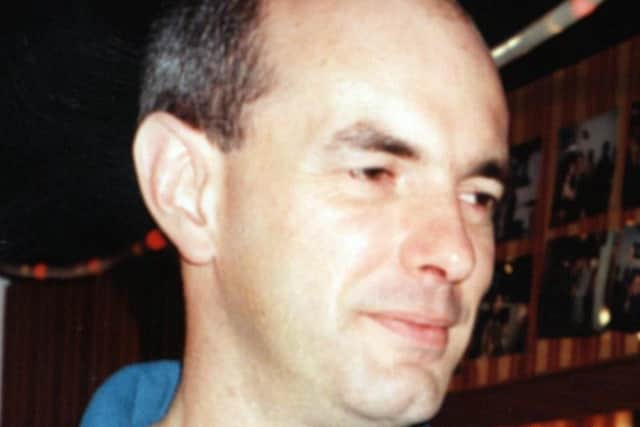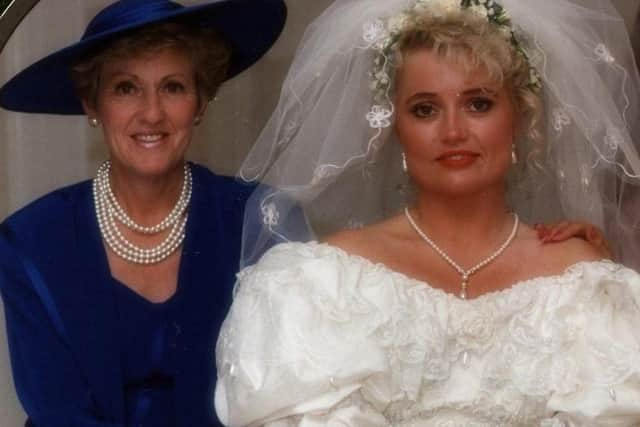Public hearing ‘not in the interest of justice’: Parole Board explains ruling over Wakefield shoe fetish killer
and live on Freeview channel 276
Farrow was aged 33 when he carried out the sadistic killing of 51-year-old Wendy Speakes at her home in Wakefield in March 1994.
He has been in prison since 2000, when he was given a life sentence with a minimum custodial term of 18 years after pleading guilty to murder.
Advertisement
Hide AdAdvertisement
Hide AdHe was given determine sentences of 14 years for rape and a further serious sex offence against Mrs Speakes.


Farrow was also given a four-year sentence for the attempted burglary of another woman’s house with intent to rape her on the same day, less than an hour earlier.
Farrow’s third parole hearing is due to be held on May 31 this year.
According to a Parole Board document, Mrs Speakes’ daughter, Tracey-Millington-Jones, made an application for Farrow’s hearing to be held in public.
Advertisement
Hide AdAdvertisement
Hide AdReforms in the law allowing hearings to take place in public were introduced last July.


The changes came after the government decided that a blanket ban on public hearings was unnecessary.
The chair of the Parole Board decides whether to hold a hearing in public or not, applying an “interest of justice” test.
The prisoner, victims, media and members of the public can make a request for a public hearing.
Advertisement
Hide AdAdvertisement
Hide AdBefore making a decision, the chair asks for representations from parties involved in the case, namely the justice secretary and the prisoner, usually through legal representatives.
Ms Millington-Jones claimed it was in the public interest as Farrow carried out a random murder.
She also said there has long been media interest in the case and the public continue to be concerned about the murder of vulnerable, lone women.
Ms Millington-Jones also argued that a public hearing would “demonstrate respect and dignity for interested parties”.
Advertisement
Hide AdAdvertisement
Hide AdLawyers representing the justice secretary were “neutral” on the application for a public hearing.
The document states: “Increased transparency is vital to building public confidence in the parole system, particularly for the most serious offenders.
“Some victims would like the hearing to be public as there is a public interest in understanding Parole Board decisions and in highlighting violence against women.
“Other victims do not support a public hearing and the attention that this might bring.”
Advertisement
Hide AdAdvertisement
Hide AdProfessionals working with Mr Farrow expressed concerns that he could “experience unnecessary stress” if the hearing was in public.
The document adds: “The Secretary of State contends that this is not a reason to reject the application.”
Summarising representations made by Farrow’s lawyers, it says: “Mr Farrow regrets his offending.
“He would support efforts to explore whether the victims attending the private hearing is possible.
Advertisement
Hide AdAdvertisement
Hide Ad“A public hearing could impact on his resettlement plans and expose others to distress.
“Mr Farrow has spent time in an open prison and is likely to make a release application.
“If the hearing is in public Mr Farrow will not give evidence; he would in a private hearing.”
Caroline Corby, chair of the Parole Board for England and Wales, rejected the application, saying: “The victims in this case have my deepest sympathies.
Advertisement
Hide AdAdvertisement
Hide Ad“I note the high bar that has been set for a public hearing to be in the interests of justice and I have decided that this high bar is not met in this case.
“Although this case of murder, sexual and other offences is distressing, there are no special features of this particular case which set it apart from other cases and which may therefore add to the proper public understanding of the parole system.
“There is a significant amount of evidence in this case which will need to be heard in private.”
A test is currently being carried out in the South-West of England by the Ministry of Justice on victims automatically having the right to attend private hearings.
Advertisement
Hide AdAdvertisement
Hide AdIt is expected to be rolled out across England and Wales during 2023.
Victims attending a private hearing will have to maintain the privacy of that hearing,
Different rules apply to public hearings.
Each year the Parole Board reviews the risk of around 900 prisoners with a conviction for murder and around 900 with a rape conviction.